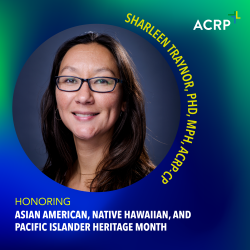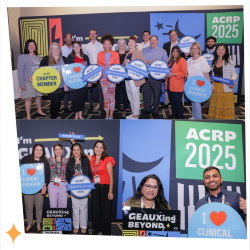In recognition of Asian American, Native Hawaiian, and Pacific Islander (AANHPI) Heritage Month this May, ACRP asked Sharleen Traynor, PhD, MPH, ACRP-CP, Director of the Clinical Trials Research Associate Program at Durham Technical Community College in North Carolina, to share her thoughts on the importance that AANHPI heritage has had in her life and more broadly in the clinical research enterprise, both for participants and professionals.
A poster on “Understanding the Role of CROs and Sponsors During the Feasibility Process to Increase Enrollment for Racial and Ethnic Minorities in Clinical Trials” was judged the best of the 10 posters accepted for presentation at the recent ACRP 2025 conference in New Orleans, La. It is the brainchild of Jalen Denson, BSPHc, LSSWB, who worked on the topic as an undergraduate student at Juniata College in Huntingdon, Pa.
In the complex world of clinical research, it's essential for sites to streamline study start-up processes to better meet their timelines, ensure trial success, and improve financial performance. From coverage analysis to contract execution, each step along the study start-up continuum has unique challenges that require strategic approaches to improve efficiency.
From the moment one begins immersing oneself in the full education, networking, and workforce development advocacy experience that an Association of Clinical Research Professionals (ACRP) conference encompasses, there’s almost limitless possibilities for meeting and learning from the new and exciting personalities one may encounter.
From a 20,000-foot view of how artificial intelligence (AI) is already reshaping the conduct of clinical research and what its future uses may bring, to insights on innovative models to promote pathways into the profession, to a summary of trends in data strategies for health equity and inclusion in Europe, to an in-the-trenches chat on the basics of site budgeting best practices for clinical trials, ACRP 2025’s closing day activities on Sunday (April 27) continued to cover the broad spectrum of challenges and opportunities facing the enterprise in these exciting times.




